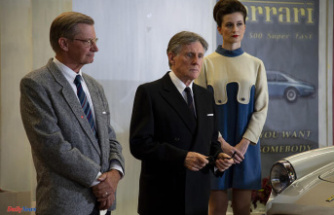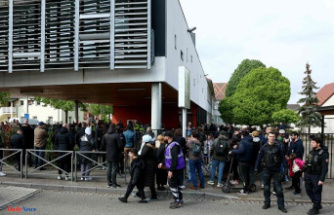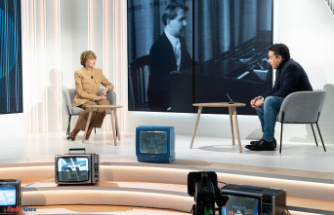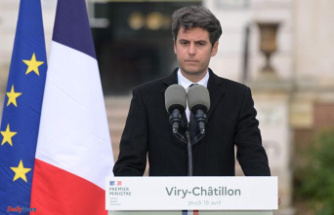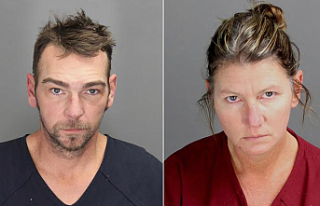Most Orthodox Christians celebrate Christmas on January 7, with many people attending midnight services. Along with other Christian denominations, the Nativity of Jesus is celebrated in churches across Greece, Bulgaria, Cyprus, Cyprus, and Romania on December 25.
Russian Orthodox Church is the largest Orthodox congregation. It stated that celebrants must wear masks and adhere to social distancing during Christmas services. Moscow's Christ The Savior Cathedral was home to Patriarch Kirill, a priest dressed in gold and who chanted prayers while waving incense containers during a midnight service.
Live broadcasts of the service showed that about half the worshippers were not wearing masks or had their heads pulled down as they watched the pageantry.
Russian President Vladimir Putin attended, without wearing a mask, a service at the Church of the Image of the Saviour Made Without Hands, Novo-Ogaryovo outside Moscow.
Russia's daily count of COVID-19 new cases has fallen by half over the past month to 15,000 on Thursday. However, there is concern that the highly contagious Omicron variant could be gaining a foothold within the country.
Mikhail Murashko, Health Minister, said Thursday that officials had detected omicron infection in people who have not been to Russia.
Belgrade, Serbia's capital, was the scene of hundreds of worshippers gathered in front of St. Sava Temple. This largest Serbian Orthodox church is known for traditional lighting of dried oak branches, which symbolize the Yule Log. A midnight liturgy for Christmas Eve was also planned by the church.
Despite a significant rise in infections attributed to the omicron variant, no anti-virus measures have been announced for Serbia's religious ceremonies. On Thursday, Serbia reported over 9,000 daily cases, which is the highest number of infections in one day since the outbreak.
Serbian health measures include the use of a face mask indoors and a limit on gatherings. However, these rules are not fully enforced. For bars, restaurants, clubs and clubs in the evening, vaccination passes are required. However they are not required for churches or indoor venues.
In his Christmas message, Porfirije, Serbian Orthodox Church patriarch Porfirije, highlighted the contributions of medical personnel during the crisis in public health. He said: "I pray that the sick get well as quickly as possible, and that the disease which has attacked the world will end."
Porfirije said that the Church calls for reasonable measures and recommendations from governments in states and regions where our people live during the pandemic, but reminds everyone to avoid being excluded and to respect human freedom as the greatest and most valuable gift of God to men."
The large Orthodox community in Kazakhstan was unable to observe Christmas in its churches due to the state of emergency. After violent clashes between police and protesters in many cities, all religious services were cancelled under a nationwide emergency. Around 20% of people living in the predominantly Muslim country identify themselves as Orthodox.



